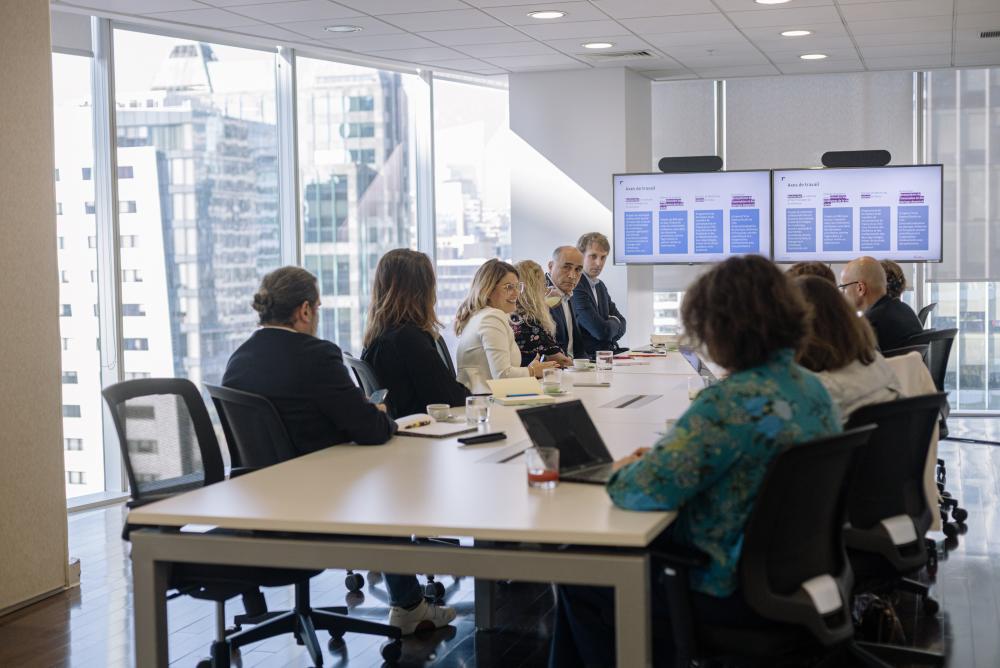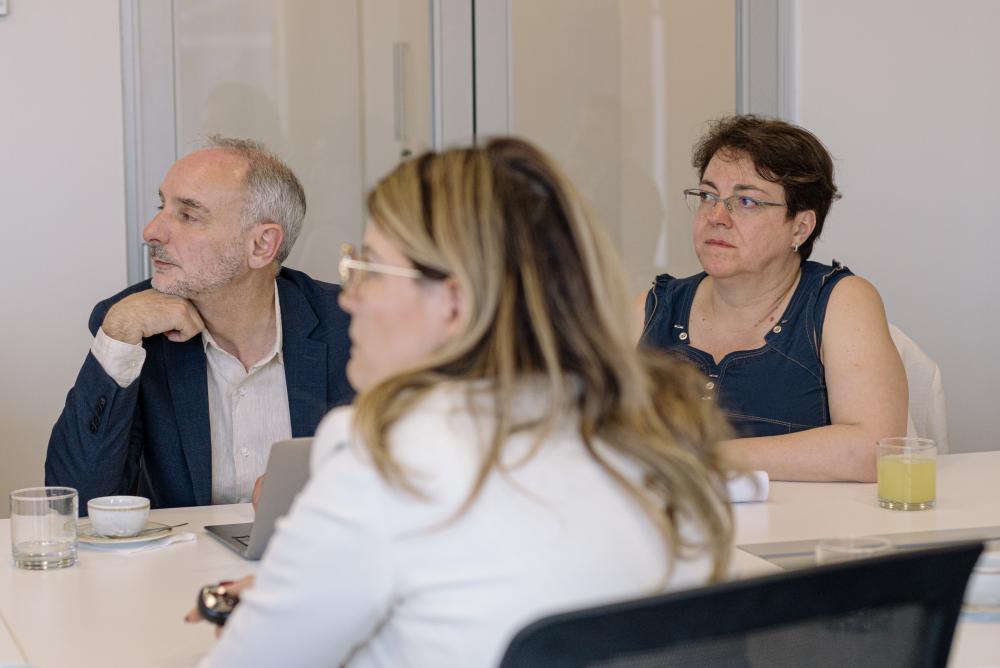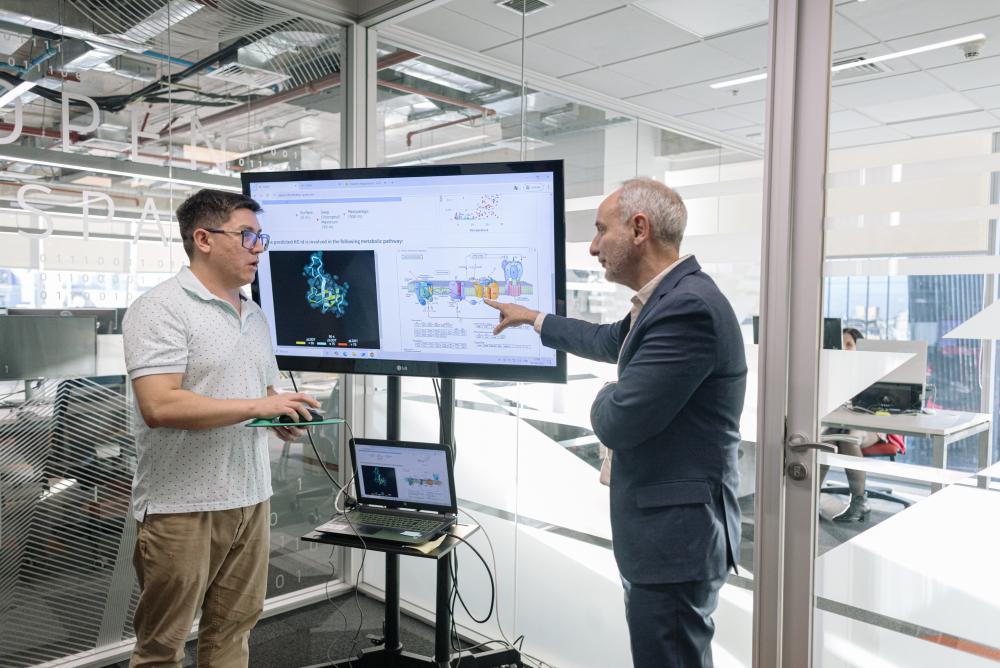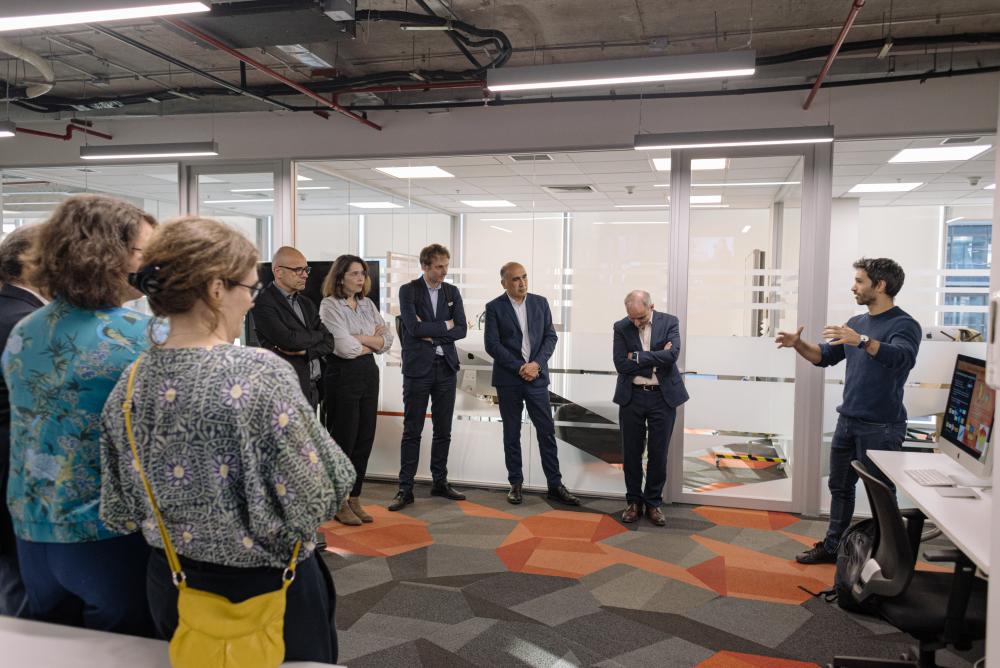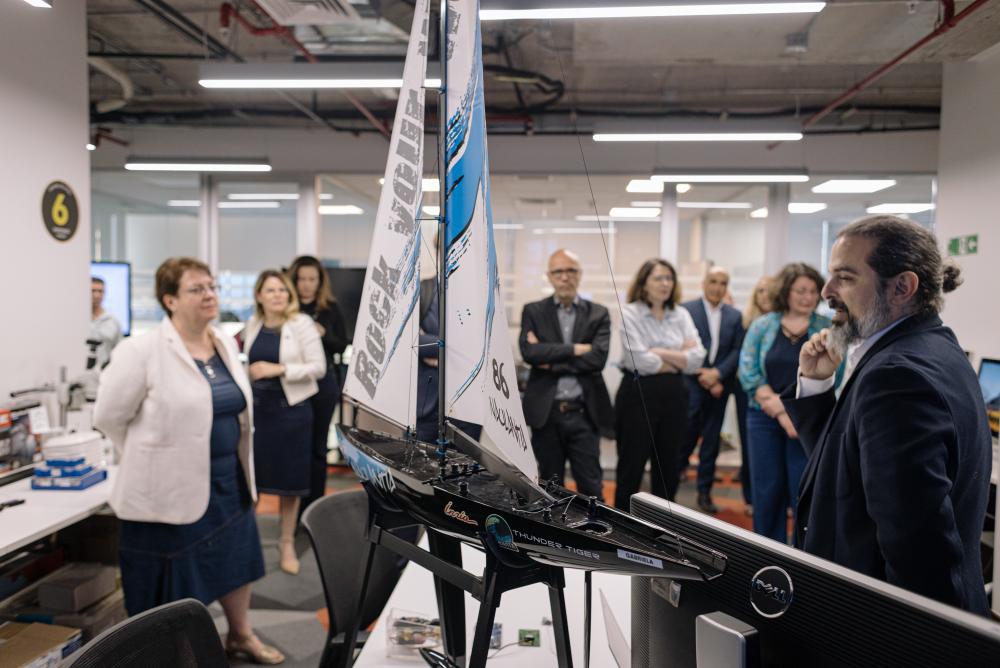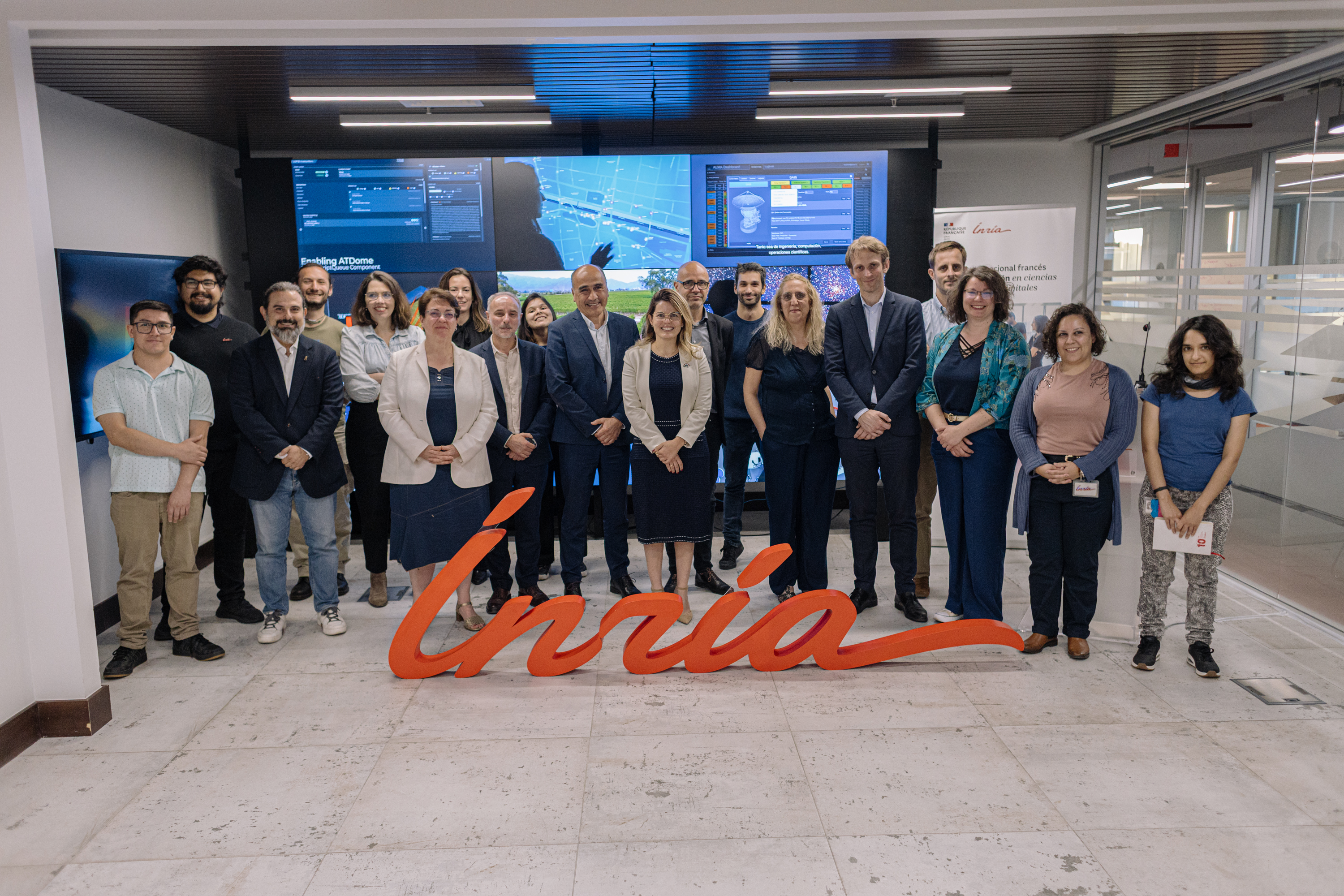
On April 7th, a delegation from the Université de Rennes, led by Muriel Hissler, Vice President of Research, and Sébastien Le Picard, Vice President of European and International Strategy, was received at the offices of Inria Chile. The delegation also included Vincent Brunie, Director of INSA Rennes; Pablo Diaz, Director of Sciences Po Rennes; Laura Sababdao da Rosa, Vice Dean of International Affairs - IGR-IAE; Maëlle Flot, Director of International Affairs and Relations at the Université de Rennes; Yolaine Bompays, Deputy Director of International Affairs and Relations at the Université de Rennes; Tamara Espineira, Director of International Relations at Sciences Po Rennes; and Nicolas Escach, Director of the Caen Campus of Sciences Po Rennes.
Inria Centre at the University of Rennes
Located in the Brittany region of France, the Inria Centre at the University of Rennes stands as a fundamental engine of research and innovation in digital sciences. Founded in 1980, its growth has been closely linked to the dynamic development of the Rennes and Lannion hubs, in close collaboration with prestigious academic institutions in the city and the Brittany region.
Key Figures of the Centre
- 32 project-teams
- 28 of these teams in collaboration with the Université de Rennes
- 700 collaborators, including 600 scientists
- 9 European Research Council (ERC) grants
- 15 startups have emerged from the project teams
A Neuralgic Hub for Research and Development
The center houses 32 project-teams, more than 28 of which are joint teams with the Université de Rennes. In these collaborative spaces, over 700 people—including scientists, research support staff, and innovation personnel—work on various initiatives, contributing to a rich diversity with 50 different nationalities.
For more information on the joint strategy of Inria with the Université de Rennes.
The visit's agenda focused on the institutional presentation of Inria Chile and the Franco-Chilean Binational Center on Artificial Intelligence. In addition to presenting the joint history of collaboration, the presentation highlighted various opportunities for collaboration in the field of artificial intelligence within the framework of the creation of the Binational Center.
Following the presentation, the visitors had the opportunity to learn about the scientific and technological advancements developed at Inria Chile through a tour of project demonstrations in the area of digital sciences, with a focus on agriculture, the environment and oceans, astrophysics, and social sciences.
- OcéanIA - Explainable AI for Plankton Species Identification: Explainable deep learning models for plankton species identification.
- OcéanIA - Understanding Ecosystem Functions through Explainable AI: Application of explainable AI methods—particularly symbolic regression—to identify relationships between genetic, environmental, and functional factors in ocean ecosystems.
- Applications of AI and Machine Learning in Astrophysics: Different use cases of novel AI and ML approaches, such as anomaly detection and physics-informed AI, to solve key problems for understanding the universe.
- Smart Agriculture - Micro-localized Climate Forecasting: Micro-localized climate prediction system that combines machine learning and the Internet of Things.
- Smart Agriculture - Computer Vision: Use of computer vision to understand the developmental status of vines within the framework of the Vendimia 5.0 project (Concha y Toro + Inria Chile).
- Huemul: A Spanish-Mapudungum Translator: Using efficient AI and active learning methods to create the first Spanish-Mapudungum translator.
- EMISTRAL: Reinforcement learning and other machine learning methods for creating autonomous sailboats for environmental research.
Verbatim
We had a great meeting with the delegation from the Université de Rennes. In addition to our long history of exchange and scientific development between our institutions, we aim to advance towards new projects and initiatives that will allow us to continue promoting bilateral cooperation in artificial intelligence. With the SEQUOIA AI Cluster, hosted by the university, we will have a strategic ally for the advancement and development of the Franco-Chilean Binational Center on AI, enabling the exchange of knowledge, practices, and new scientific developments.
Director of Inria Chile / Director of the Franco-Chilean Binational Center for Artificial Intelligence
The Université de Rennes hosts one of France's nine AI Clusters, SEQUOIA, making it a fundamental interlocutor and collaborator for the Binational Center. The SEQUOIA cluster (Security, Trust, AI) brings together 19 partners from Brittany to create a research and innovation ecosystem in artificial intelligence, focusing on three main scientific areas: Fundamental AI (learning, secure AI, robotics, etc.), AI applied to cybersecurity and defense, AI for the environment and oceans, with a special focus on Earth and ocean observation and modeling.
The meeting fostered an enriching dialogue to identify new avenues for collaboration in research, education, and innovation in artificial intelligence. Both institutions are committed to continuing to build bridges and strengthen ties for the benefit of scientific and technological development.

